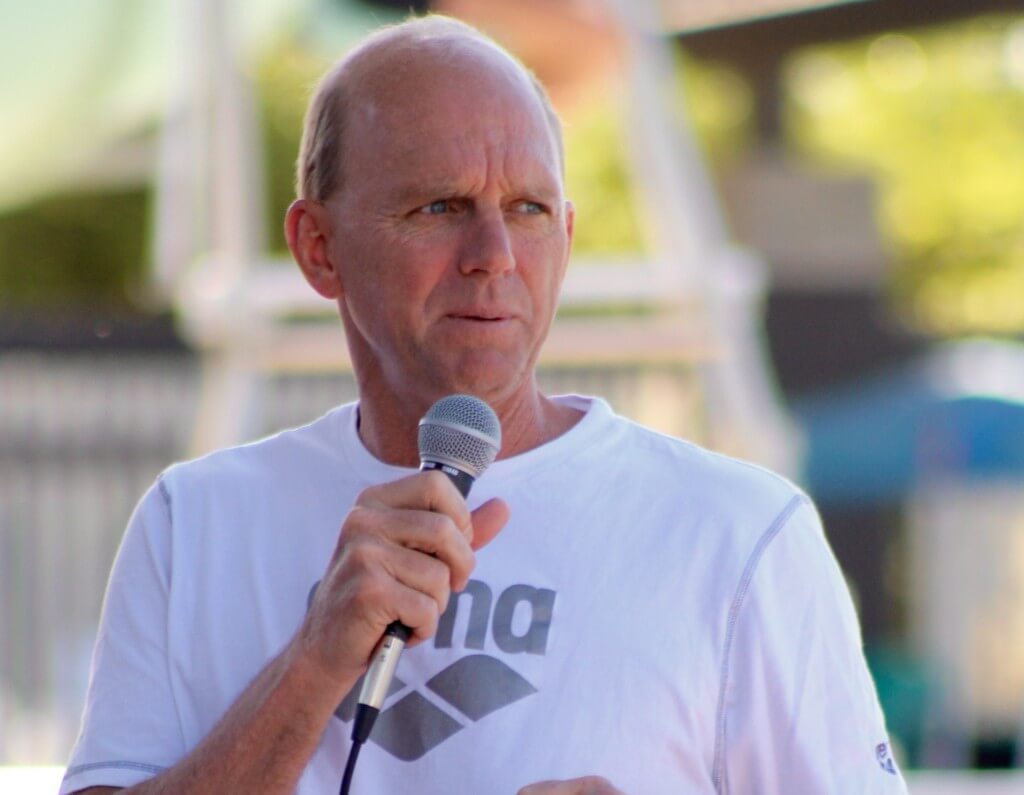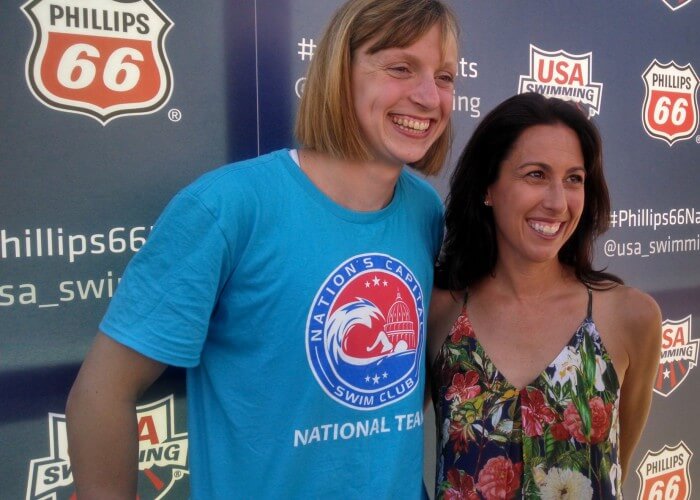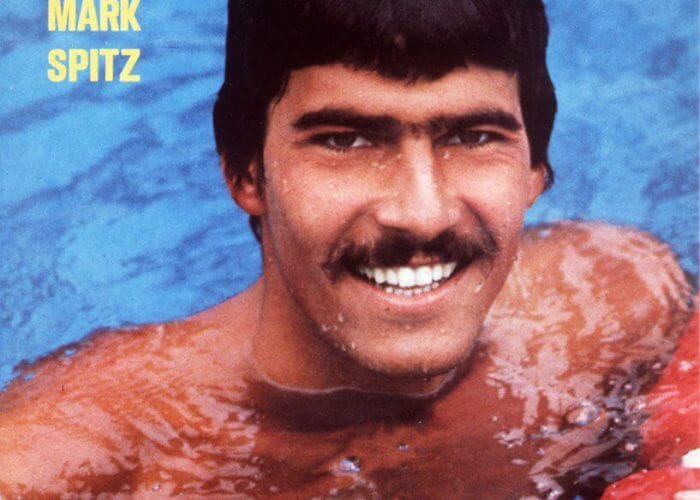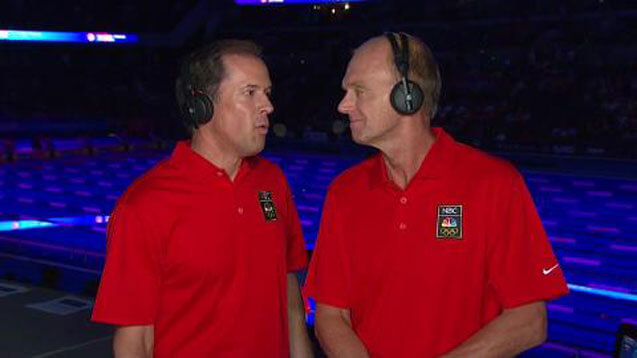Where Are These Swim Legends Now? Featuring Janet Evans, Mark Spitz and Rowdy Gaines

By Makena Markert, Swimming World College Intern.
Four Olympic gold medals, one silver Olympic medal, seven world records, and 45 American national titles all belong to Janet Evans. Nine Olympic gold medals, one Olympic silver medal, one Olympic bronze medal and 33 world records are under Mark Spitz‘ belt. Three Olympic gold medals, 10 world records, a member of the U.S. Olympic Hall of Fame and the International Swimming Hall of Fame are all accolades attributed to Rowdy Gaines.
These three Olympians made waves in the pool, and they continue to make their marks out of the water as well. Where are they now?
1. Janet Evans

Photo Courtesy: Jeff Commings
Evans is widely recognized as the best female distance swimmer in history. Now, having retired, she is giving back so much to the sport that has shaped her into who she is. Evans is married and lives in Southern California with her husband and two children, Sydney and Jake.
Full-time mother of two, Evans still manages to make time to pursue motivational speaking and is the ambassador of LYFE Kitchen, a restaurant chain. LYFE stands for Love Your Food Everyday, and all of the products are from local vendors. LYFE serves great-tasting and healthy food, and it continues to open several more locations throughout the United States.
She is also the author of the book Janet Evans’ Total Swimming, published in 2007, and offers fitness programs and insight on proper swim technique.
2. Mark Spitz

Photo Courtesy: International Swimming Hall of Fame
Spitz was the first athlete to win seven gold medals in a single Olympic Games – an incredible feat. His plan was to dominate his competition, and he did just that. In each of Spitz’ events in 1972, he not only won gold but also set new world records. It would take 36 years for anyone to top seven gold medals in a single Olympic Games, done only by Michael Phelps in Beijing in 2008.
After his success in Munich, Spitz remained close to the pool helping to cover the 1976 and 1984 Summer Olympics. Spitz was not in the public eye for much of the 1980s and surprisingly decided to give the 1992 Olympic Trials a shot at the age of 41. Unfortunately, he was about two seconds off of making the United States Olympic team that year.
After officially retiring from the pool, Spitz was diagnosed with acid reflux disease and incredibly high cholesterol levels requiring immediate attention. Spitz decided to make changes in his life through diet and exercise modifications; however, this condition required medication due to its genetic link. Spitz was able to cut his cholesterol levels nearly in half and recognizes the importance of maintaining a healthy lifestyle after his elite swimming career.
In addition to working for ABC Sports, Spitz also worked as a real estate agent and appeared in TV commercials. He continues to find considerable success traveling the world as a motivational speaker.
3. Rowdy Gaines

Photo Courtesy: Universal Sports
Anyone can learn a thing or two from this father of four daughters and Director of Outreach for the Alabama Sports Hall of Fame.
Gaines didn’t start competitively swimming until he was in high school but quickly came to the realization he had found the sport for him. If not for the 1980 Olympic boycott, Gaines would likely have several more Olympic medals under his belt. He was predicted to win four Olympic golds in 1980. Although disappointed by not having the opportunity to compete, he stood behind President Carter’s decision to boycott the Olympics that year.
Gaines decided to compete in the 1984 Olympic Trials at the age of 25 and made the Olympic team in three events: the 100 freestyle, 400 freestyle relay, and the 400 medley relay. Very few people knew what Gaines was capable of, as he was considered an underdog. However, this “underdog” came out on top – Gaines won an individual gold medal in the 100 freestyle and anchored both relays to the gold.
Several years later, in 1991, Gaines was diagnosed with Guillan-Bare Syndrome – a neurological disorder that paralyzes the entire nervous system. No known cure exists, and the syndrome affects about 1 in every 100,000 Americans. Gaines was hospitalized for two months and miraculously made a full recovery. His doctors said his recovery could likely be attributed to his excellent physical condition from his swimming past.
Gaines didn’t let this bump in the road slow him down; within a year, he was able to relearn basic everyday tasks. But he didn’t stop there; he even returned to the pool and competed in a few meets. However, as a husband and father, he decided to take a step back from competing and worked on the sidelines broadcasting as NBC’s Olympic Games Swimming commentator. With his wealth of swimming knowledge, this job was quite fitting and came naturally.
To this day, Gaines travels the world spreading his love for the sport to people of all backgrounds and is a highly sought-after speaker.
Obviously, Olympians delve into a variety of activities following their retirement: One thing many have in common is giving back to the sport in some way.



